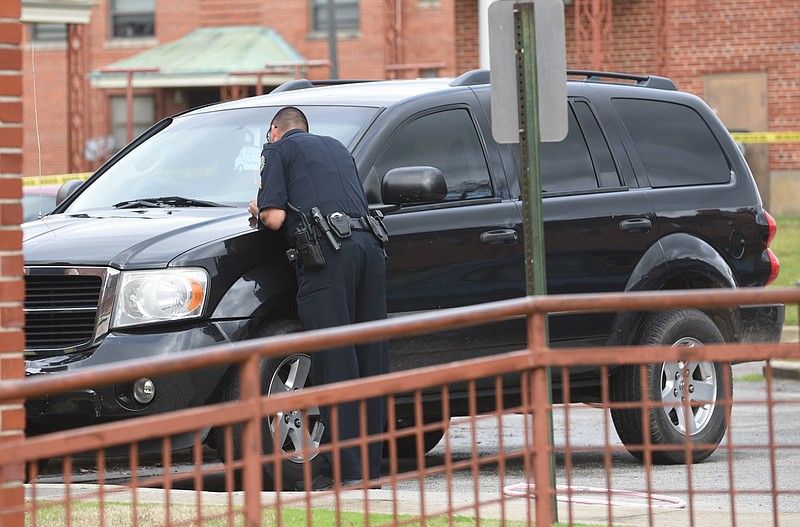After a spate of seven shootings in a matter of days, Chattanooga police announced this week they will double the manpower targeting gangs.
Now about 20 people in the police department work full time on gang and gun violence, and that will jump to 40 as police add another "tool" to the "tool" they announced three years ago - the Violence Reduction Initiative, known as VRI.
And as the campaigns for mayor and City Council heat up, there was speculation among many that perhaps VRI - an expensive program that has helped some gang members leave gang life and resulted in a number of gang-related arrests but only a handful of gang-related prosecutions - might be on its way out.
Depending on which City Council official you were talking to, that might or might not be the case.
Frankly, we hope not - at least not completely. Certainly the program needed some tweaks, and those announced Monday are welcome ones. But we must not throw the baby out with the bathwater.
Looking just at the number of shootings - more than half of which are usually gang-related - one might make a knee-jerk assessment that the program has been ineffective because from 2013 through 2016, there were 123, 114, 119 and 132 shootings, respectively.
But by percentage, the number of gang shootings is down ever so slightly. In 2013, the year before the program began, 63 percent of the city's shootings involved gang members. In 2016, that had dropped to 60 percent.
So while city shootings are up, gang shootings have flat-lined.
Councilman Chip Henderson, one of several council candidates who spoke with our editorial board last week, perhaps summed it up best while stressing that the gang problem didn't get here overnight and can't be addressed overnight because it's a complicated societal problem that involves education and jobs as much as it involves police work.
"We're admitting it's going to take some time regardless of what plan we use. We'll never [just] police our way out of it. There is no silver bullet."
Thus, the VRI was and is a Band-Aid. The real fix is education and a commitment to the equity of that education so that our most at-risk young people - especially those who grow up in poverty - can get the kind of education that can land them in a job, not in Gang University.
VRI's aim - no pun intended - is toward the small core of people who are shot and who shoot back. It has been a law enforcement strategy that set rules for those young gang members and gave them a choice: stop shooting and receive social services, or watch law enforcement come at you hard. You'll face the full force of the law if you keep pulling the trigger, the men are told.
Andrew Fox, an assistant professor of criminal justice at the University of Missouri-Kansas City, told the Times Free Press some months ago that the answer is much broader than law enforcement.
School districts should ensure all schools are quality schools, and intervene aggressively at the first sign of truancy. Cities should check where their tax breaks go and how the use of those tax abatements affect development in low-income neighborhoods. And researchers need to figure out the warning signs, the precursors to gang membership so the community - churches, schools, social workers - can intervene earlier in the lives of at-risk youth.
In Chattanooga, it has long been demonstrated that hundreds - thousands - of young children continue cycles of poverty in low-performing schools where, by third grade, scores show students cannot read well enough to keep up. Many of those students eventually drop out or are expelled - doomed to be unemployable.
We have allowed this. We have allowed the impact of poor education to be so predictable that we might just as well have given these young people their guns and pulled the triggers ourselves.
Certainly it's good that we've made the investment in VRI and it's good that we've now made tweaks and more investment to the gang problem that Chattanooga officials before the administration of Mayor Andy Berke largely termed either nonexistent or "wannabes.
But policing is the end-result - not the prevention. We have to use both. So while we beef up the police tools, let's be sure we also enhance the education, jobs-help and social programs that give our children better options.
